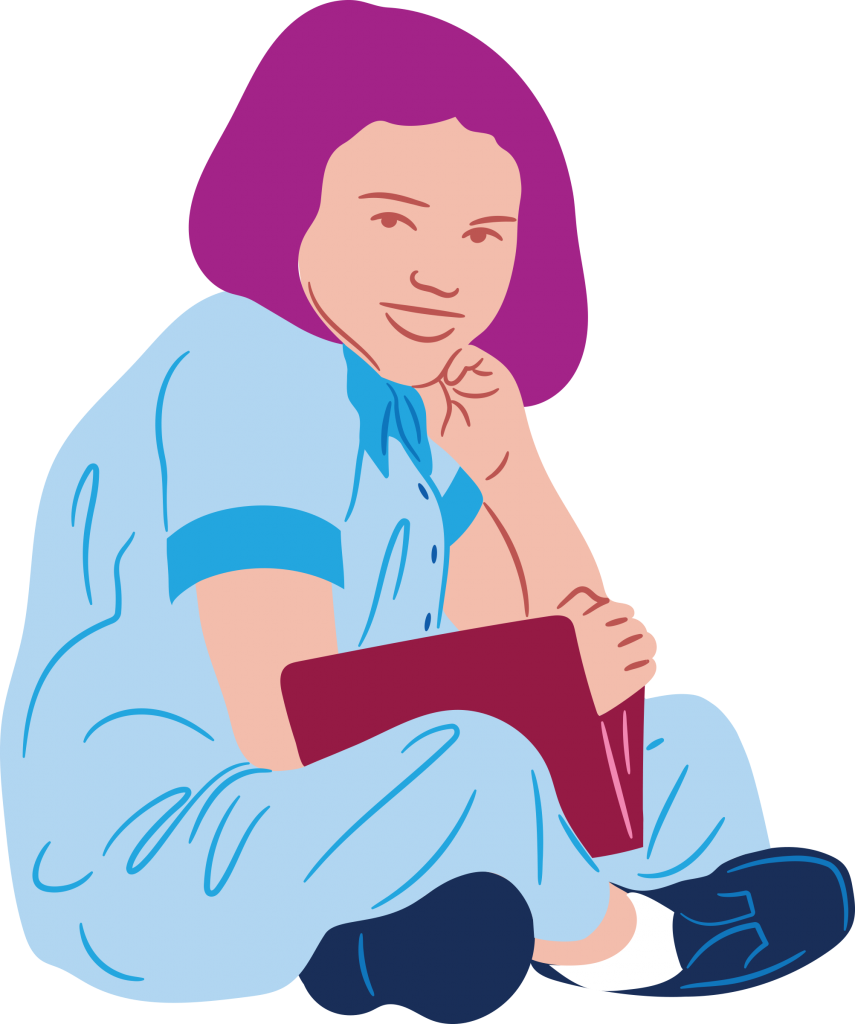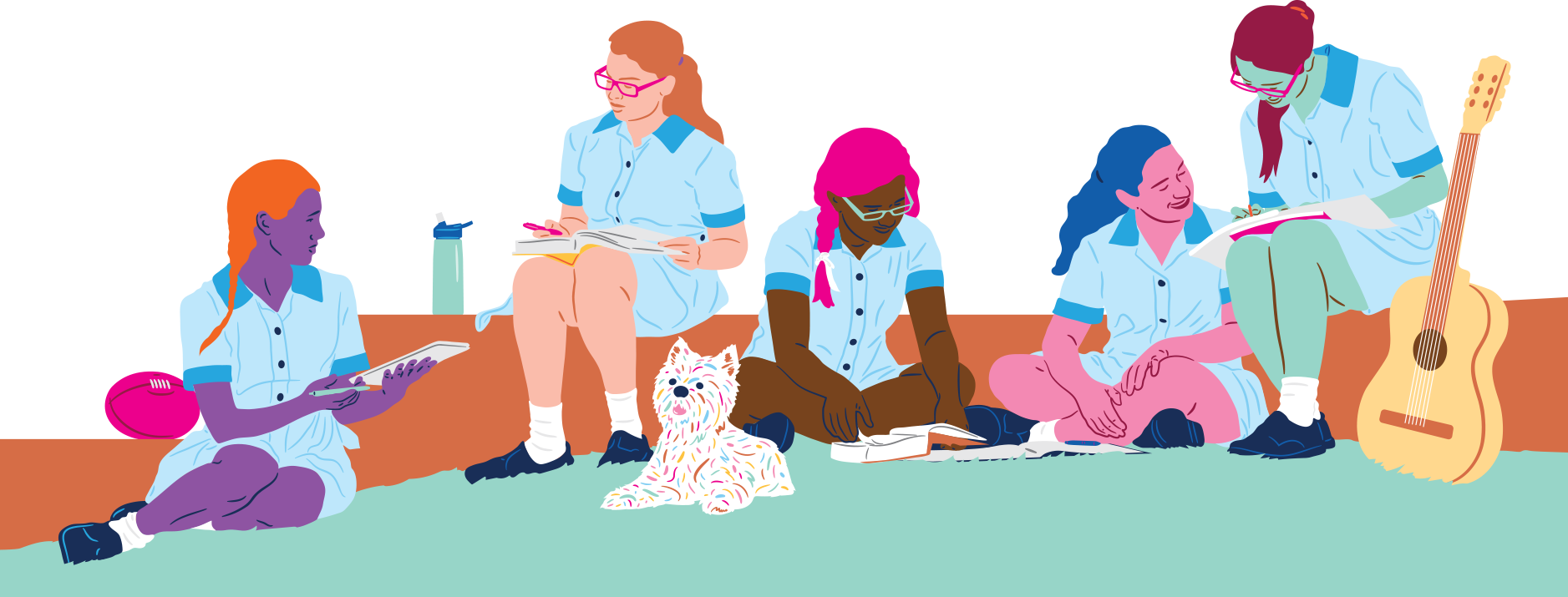From award-winning performances and work experience reflections to immersive excursions and innovative STEM challenges, our secondary students embraced every opportunity this term.
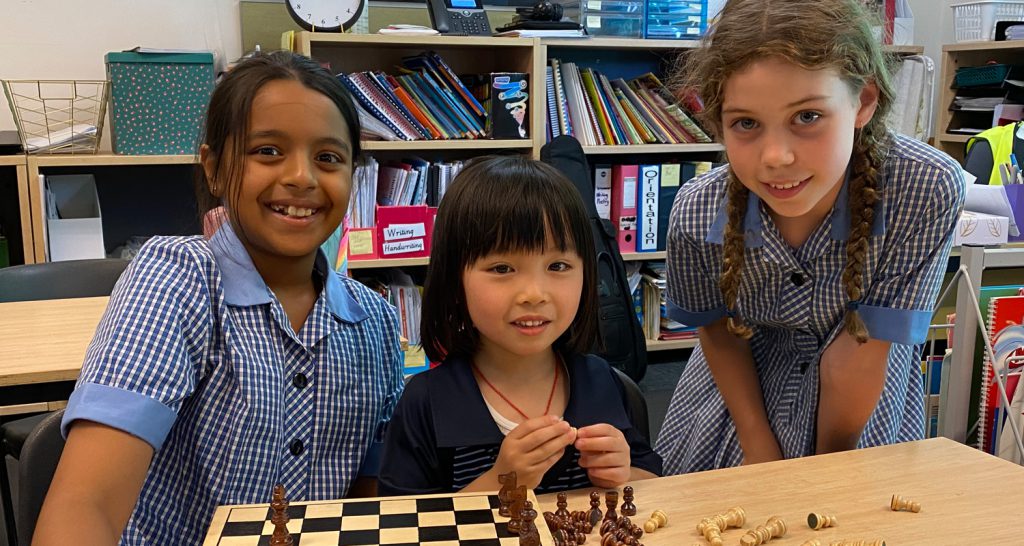
It was a pleasure inducting our Year 6G students as our Ormiston leaders for Semester One. The highlight of this event was the speeches of three students – Sienna Jack, Amelia Adel and Ailey Poon. Each student spoke about leadership and what it meant to them, and our Year 6 leadership program recognises the potential in all students. Each Year 6 student has the opportunity to experience being a leader. I would like to thank Jasvindar Gill for organising our student leaders. As a school community, we look forward to their contributions throughout the year.
Art Leaders
Charlotte Thomson & Rebecca Luo
Assembly & Events Leaders
Sienna Jack & Selinna Wang
House Leaders
Kathleen Lin, Sophie-May Ronzani, Ellie Tsigounis & Ailey Poon
Library Leaders
Amelia Adel & Ruth Whelan
Music Leaders
Iris Lu & Alysa Zhang
School Captains
Aaratrika Kadam & Joyce Zhang
Social Service Leaders
Sharon Zhang & Amiya Rajakulendran
Sustainability Leaders
Ava Pao & Olivia Wu
Year 1 – 6 Student Council
At our leader’s assembly, we also had the opportunity to induct our Student Council representatives for Semester One. Mr Goodwin read out the names of the students from Year 1- 6 and talked about the importance of leadership at an early age and being a positive role model for the school community. We look forward to the service learning projects that will be undertaken by the group, and other activities that involve Ormiston. Congratulations to the following students:
Year 1
Elena Jia
Year 2
Yolanda Ma
Year 3
Aryana Perera
Year 4
Audrey Cheung
Year 5
Nellie Endaragalla & Anjali Cabraal
Year 6L
Claire Nguyen
Social Service Leaders
Sharon Zhang & Amiya Rajakulendran
I wish our Ormiston families a lovely weekend and look forward to seeing many of our school community at our Twilight Picnic next Friday 24 February.
Paul Donohue
Head of Junior School
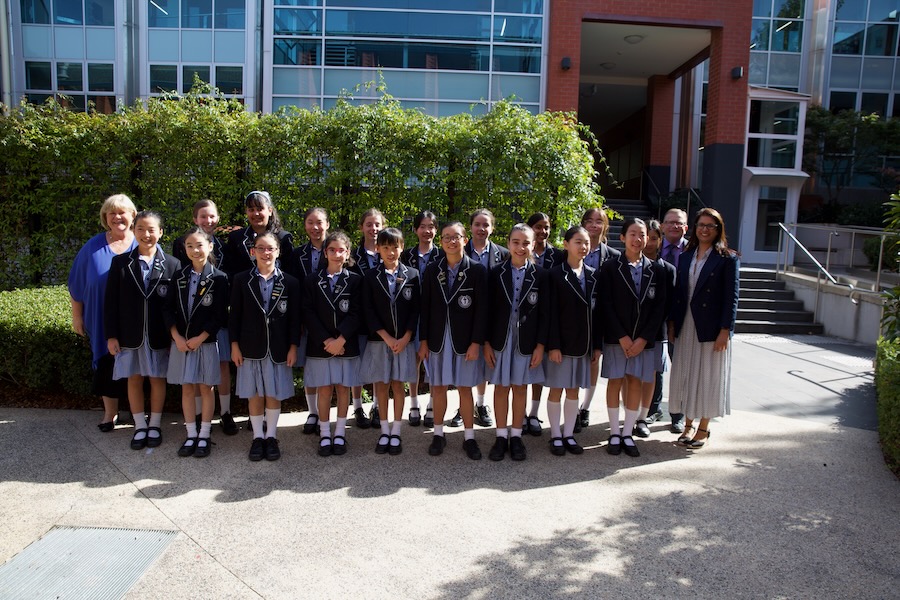
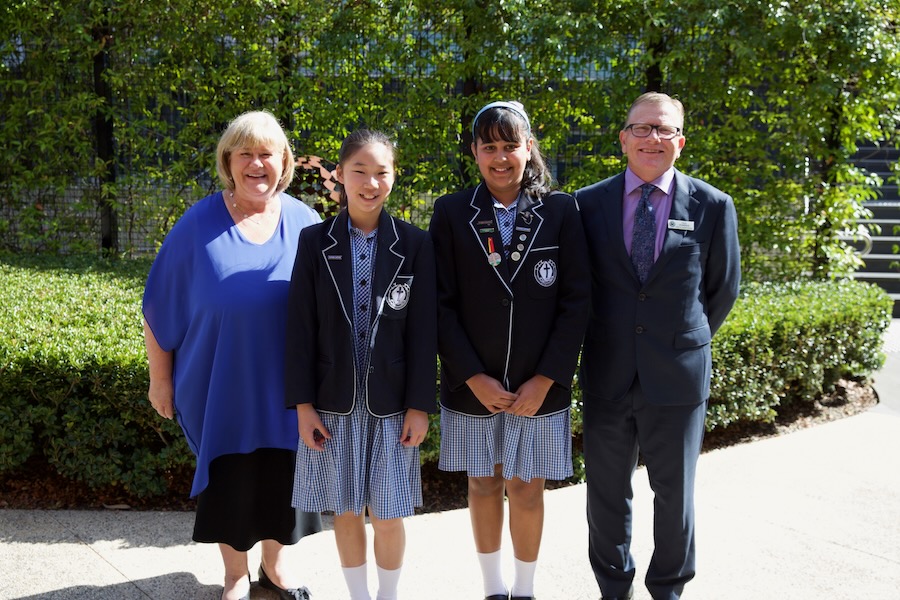
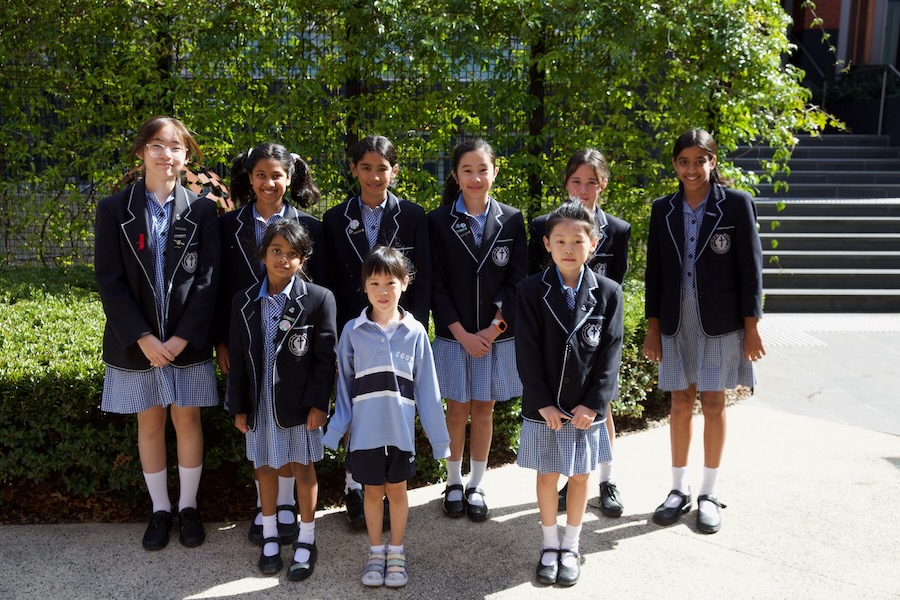
Last week we invited parents to school for our Foundation-Y6 Meet the Teacher evening. We were thrilled to see so many people attend and have the opportunity to connect with other families and meet our teaching team to gain further insights into our curriculum programs.
During the presentation, Mrs Debbie Dunwoody outlined the importance of research when designing our core curriculum programs. The Writing Revolution program is a coherent approach to writing that provides explicit instruction from teachers to enable students to accurately build sentences and paragraphs. Over the past two years, Junior School teachers have been completing intensive training in the Hochman Method. In the coming weeks, Lisa White, Literacy Learning Leader will provide further examples of how The Writing Revolution is implemented at Junior School.
Our Numeracy program focuses on a three-part pedagogy. Explicit instruction, where teachers actively engage students to model concepts using visual representations. Developmentally sequenced hands-on activities that encourage students to use manipulatives to build strong cognitive connections and differentiated independent and small group tasks that consolidate skills and enable teachers check for understanding. This program is engaging for our students and fosters opportunities to apply their mathematical knowledge to open-ended problem-solving tasks.
This week in Numeracy, students from Foundation to Year 6 have been exploring counting and place value concepts. Students from different year levels have engaged with our Learning Through Doing resources. Students in Year 1 were encouraged to look for patterns on the 100 mat and use mathematical language to describe numbers. Students in Year 3 used the same resources to learn about the composition of large numbers.
These rich learning experiences are ensuring our students are building the proficiencies of understanding, fluency, problem-solving and reasoning.
Nancy Robottom
Acting Deputy Head of Junior School
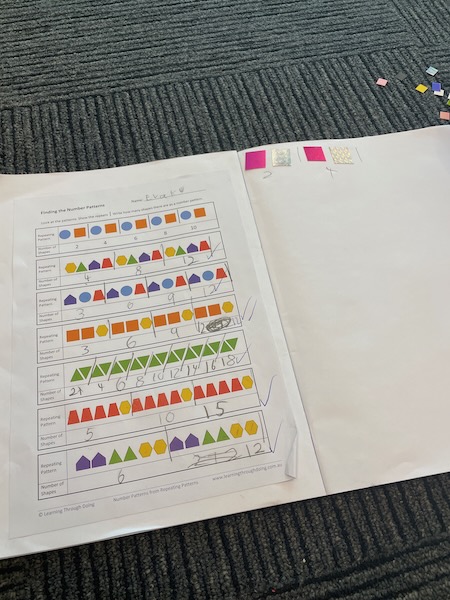
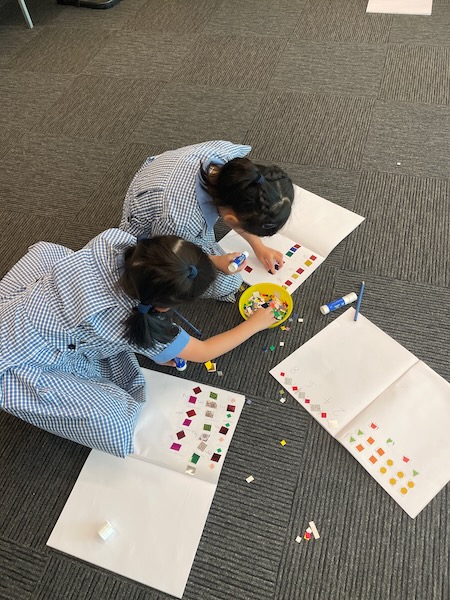
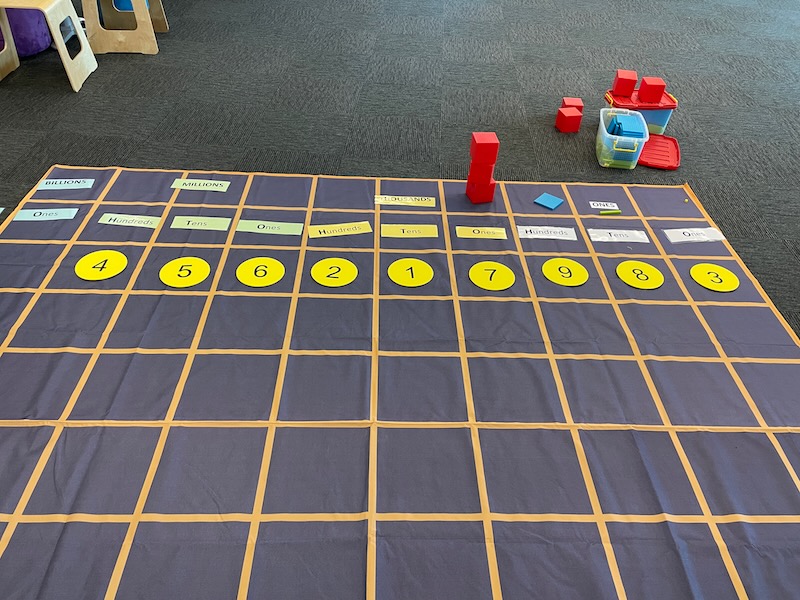
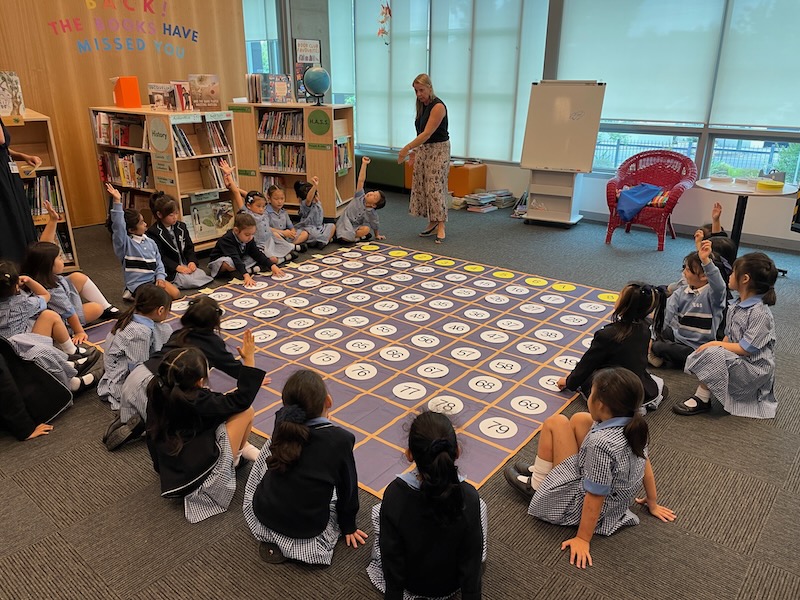
This year, the ELC’s inquiry is inspired by the provocation ‘Taking to Heart, Taking to Mind, Taking to Action’ by David Perkin, a professor at Harvard Graduate School of Education’s Project Zero. His work introduces the teaching philosophy of lifeworthy learning to which it introduces ‘transformative’ concepts into education where curiosity and creativity is key in building understanding. Its approach engages learners to have agency, inhibit engagement that is purposeful and meaningful, and that teachers, children and families are very much active and involved in the learning process (Perkins, 2014). Formal learning becomes flexible and integrated into the inquiry, where elements of literacy, language, science, mathematics, technology, and the arts are evident through the journey and are meaningful to the children as it captures their heart and emotions, provokes thinking and questioning, and actions their curiosity to ‘step out, find out and speak out’ about their ideas.
Who Am I? Who is in my Learning Community?
With such a complex topic, it is important to lay foundation to the key components of ‘community learning’, and that is to recognise the individual learner and contributor. Children are transformative in their role as learners and take on different perspectives when engaging in a project, they become artists, creators, researchers, experimenter, investigators, and problem solvers. This supports children in forming their identity – who they are in the classroom, and their dispositions.
Across the ELC, the children have been discussing similarities and differences when it comes to their identity; establishing who they are in this space; representing their ideas through self-portrait drawings, storytelling, and hand printing; and creating environments that reflect our shared values through a manifesto.
Perkins, D. (2014). Future Wise: Educating Our Children for a Changing World. John Wiley & Sons.
Early Learning 3
The Early Learning 3 children have been exploring their hands as a form of identity. The purpose of using their hands is for children to consider ‘What are my hands capable of doing?’ and ‘What can we use our hands for?’ When it comes to play and learning. Using hands as a form of visual representation encourages children to develop fine motor skills whilst focusing on our sense of feel and sight. Children make connection between physical, cognitive, and emotional learning, which later inquiry support their exploration into self-portraits.
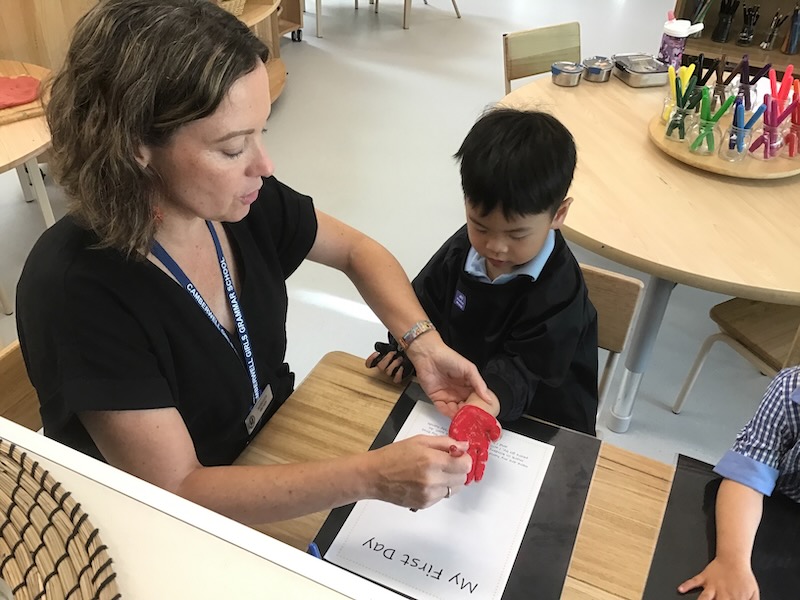
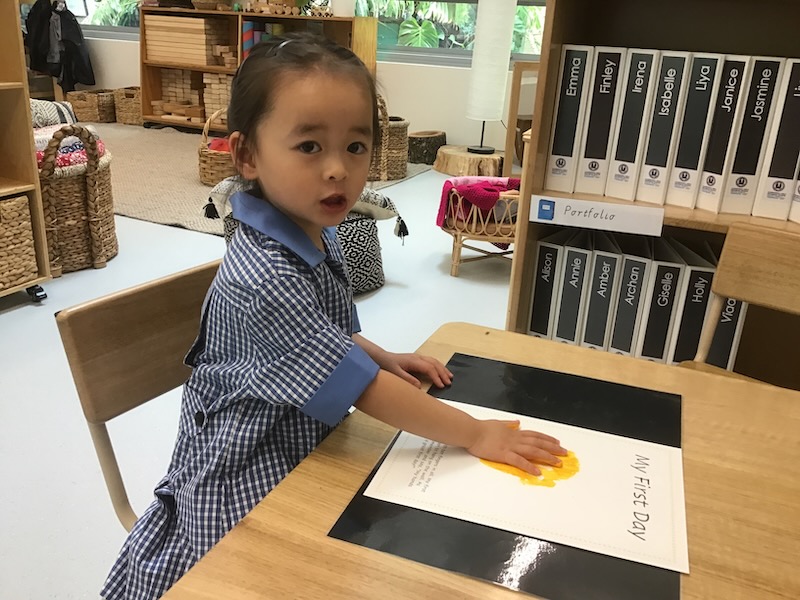
Early Learning 4 Part Time
When it comes to ‘community learning’, the children in the EL4 Part Time classroom have been investigating the learning threads of respect, choices, sharing, kindness, mindfulness, whole body listening, responsibility, relationships, empathy, resilience, and community. It is these values that are necessary in provoking children to connect through learning and to share ideas unique to their own understanding.
The EL4 Part Time children have developed a shared agreement when it comes to learning and play. It’s about developing values and actions to support each other in their collective and individual learning. During group time, the children were introduced to the metaphor of a sunflower. Similar to the shape of a sunflower, the children sat in a circle, the centre representing the EL4 community, and its petals, each individualised like members of our class.
As a community of learners, we come together to:
And most importantly, find joy in what we do.
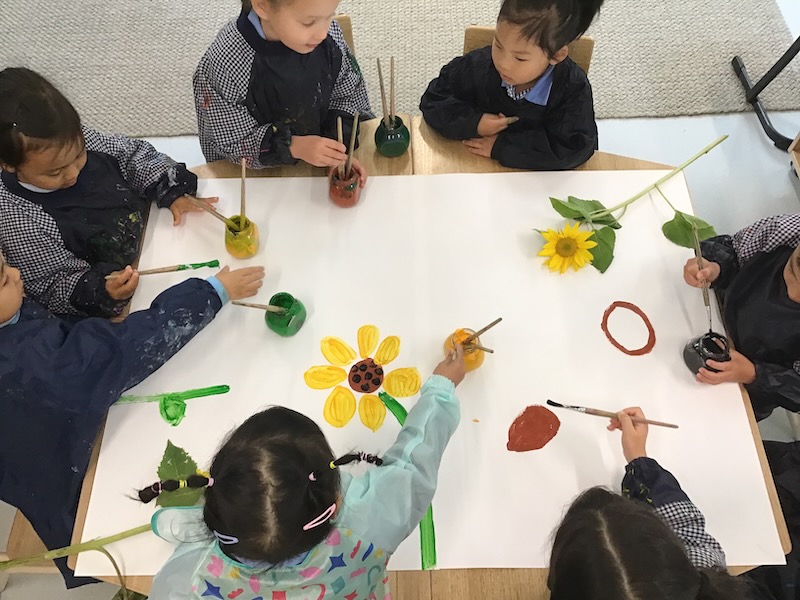
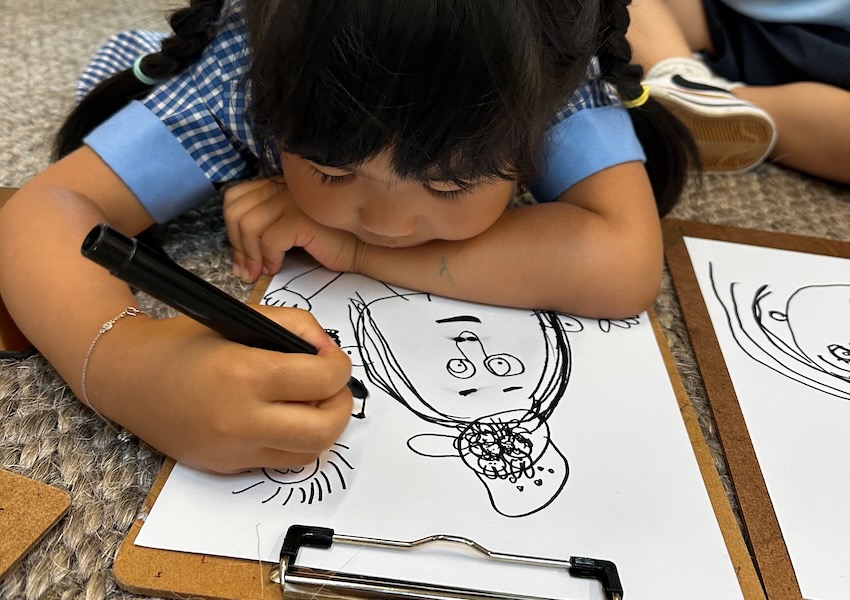
Early Learning 4 Full Time
“Go to your elders. You should ask them about your country and your totem. Because that is your identity.” – Gary Lonesborough
The EL4 Full Time children have drawn inspiration from Aunty Fay Muir and Sue Lawson’s storybook “Family” as a provocation for identity and family. Children engaged in discussions about their family and how it has many different meanings. The underlining role of ‘kinship’ connects first nations culture with their family culture. It is through an established ‘sense of belonging’ that children’s identity can be recognised as an individual, within a family and as a member of their community.
Esther Wong
Early Learning Coordinator
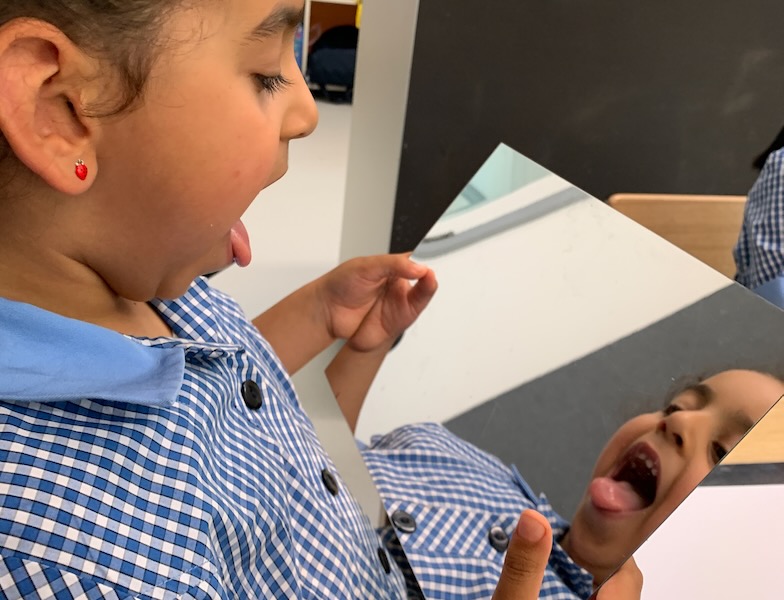
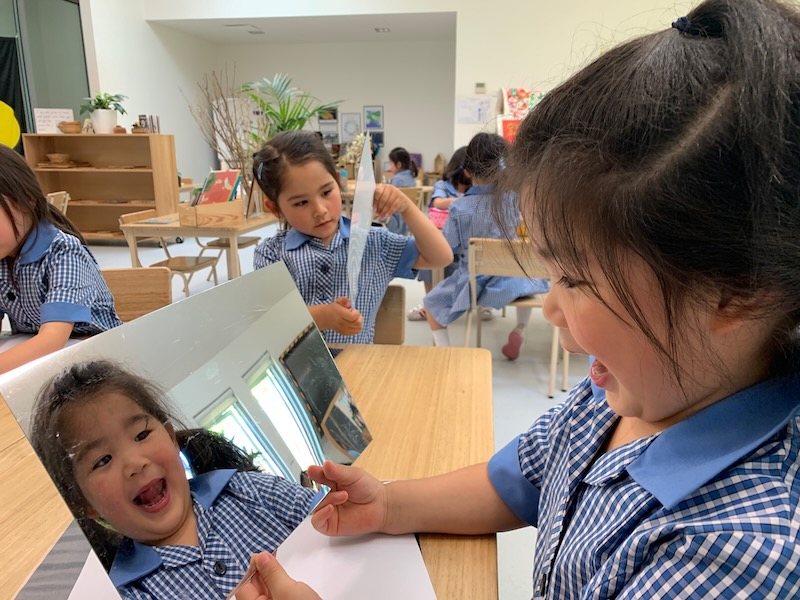
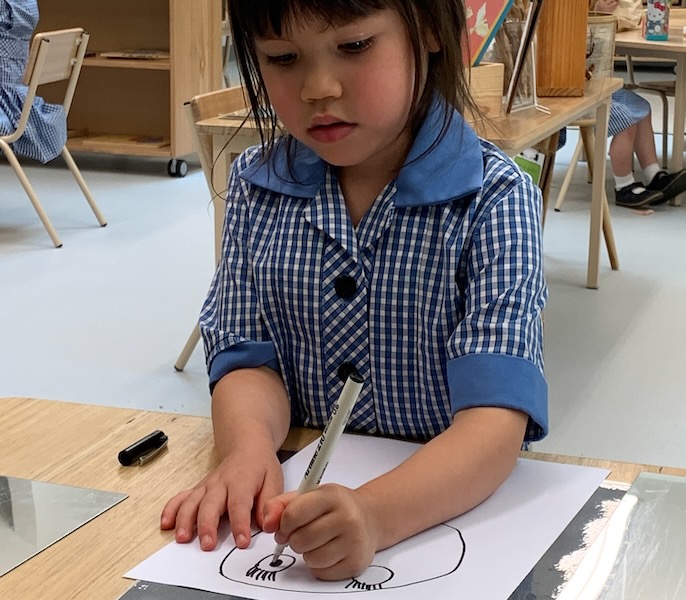
At the beginning of the school year, the Foundation and Year 5 students make connections with each other. This year, connections have been made via the identification of House colours. The focus is on establishing relationships that matter; relationships that are meaningful, safe, positive and create lasting memories for all the students involved. Students are provided with time each fortnight to meet, talk and share stories in a happy and engaging environment. Each week these students sit together during Assembly time. Our goal is to create learning that matters, that makes a difference in every student’s lives. The Foundation and Year 5 student program provides the Foundation students with a new and welcoming friend at Ormiston and the opportunity for the Year 5 students to develop their positive role modelling skills. Together we are Fivedation!
Fiorella Soci on behalf of the Foundation & Year 5 teachers, Selena Reedman and Craig Goodwin
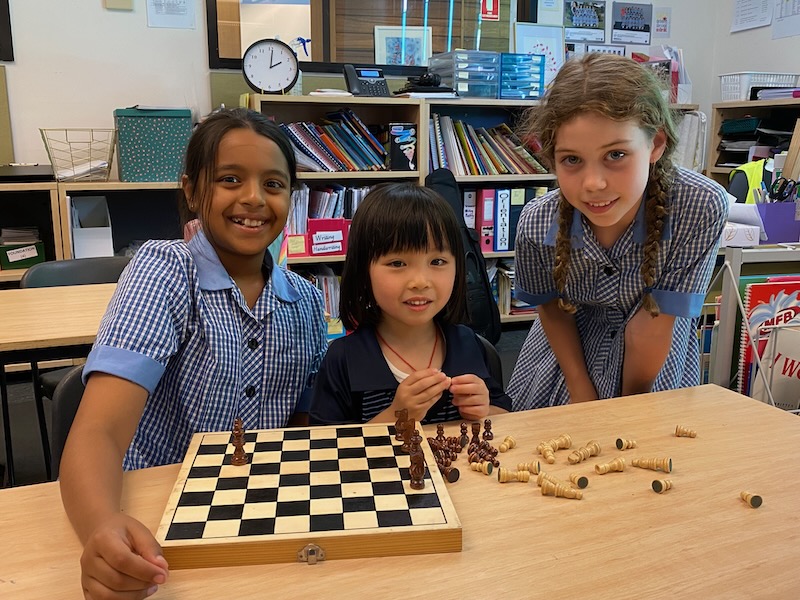
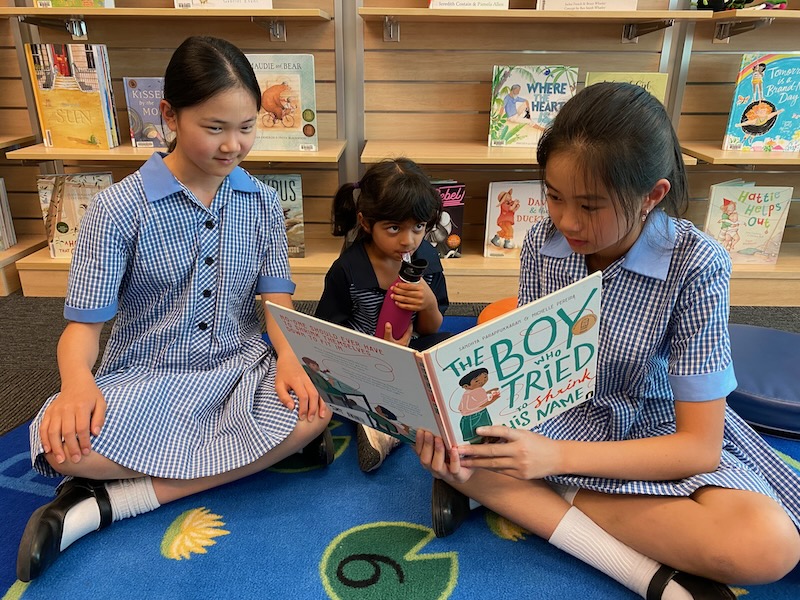
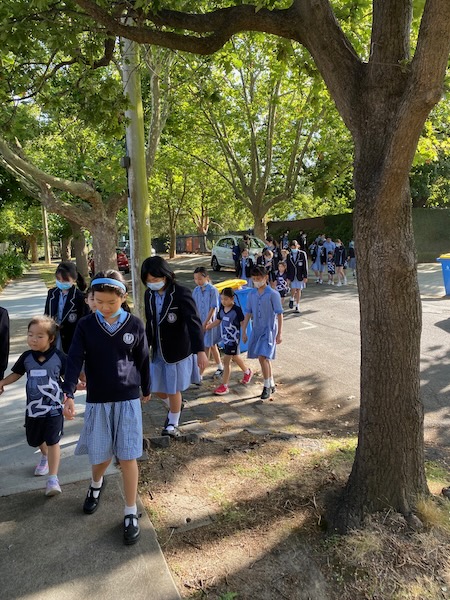
In Art, the students from across the Junior school have contributed to this beautiful floral mural, which takes up the whole of the wall in the Art room. The mural is very full, bright, fun and happy. The students are very proud of their own part in the mural and how it evolved over the weeks. The Year 5’s first created the background of long green stems, leaves and vines. Then all the students from EL4 to Year 6 were encouraged to use their imagination to draw a range of different shaped flowers and plants. When it came to the painting session, they used acrylic paints, mixing different colours with great enjoyment of the process of experimentation and discovery. As there were so many flowers, EL4, Year 1 & 2 flowers were laminated and put up on the windows and wooden wall in the Junior School Hall. Please come by and see for yourself the wonderful art display.
Fiona Gibson
Art Teacher
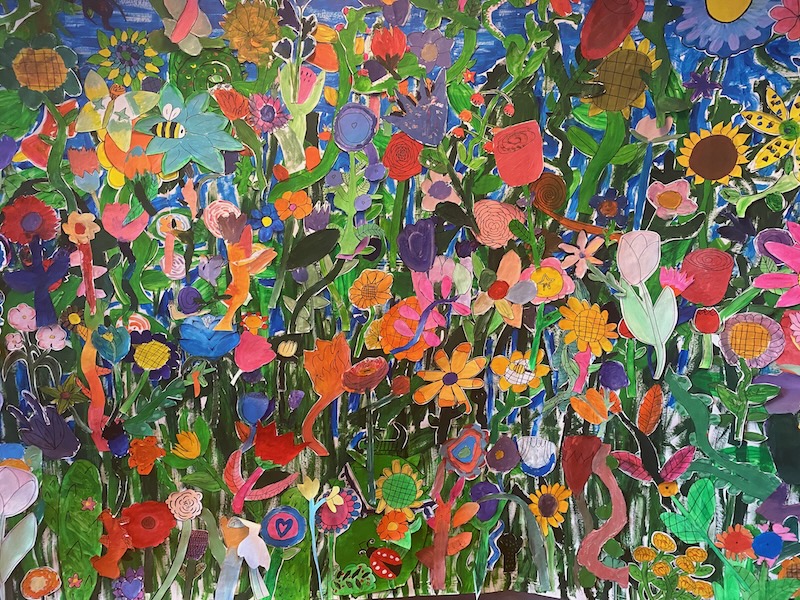
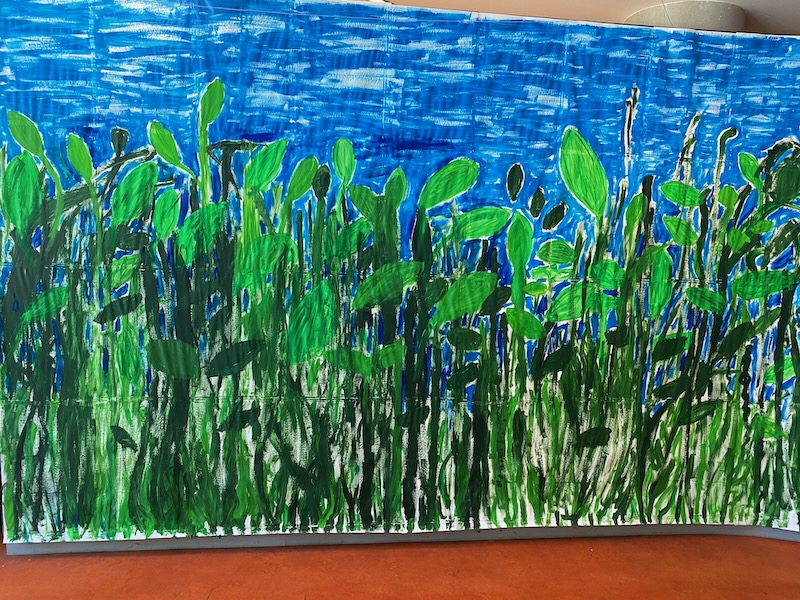
From award-winning performances and work experience reflections to immersive excursions and innovative STEM challenges, our secondary students embraced every opportunity this term.
Curiosity, creativity and care have shaped Term 2 at the Junior School with highlights including student-led sustainability initiatives, national debating success and inspiring community connections.
Celebrating 105 years, rallying behind fundraising efforts, and supporting student growth – ended by showcasing the strength and spirit of our Camberwell Girls community.
This edition, Mrs Dunwoody reflects on a term filled with learning, leadership, and community connection, including milestone events and exciting student initiatives.
We acknowledge and pay respect to the Wurundjeri people as the traditional custodians of the land on which the school is situated.
Secondary School / Administration
2 Torrington Street, Canterbury
Victoria 3126 Australia
T +61 3 9813 1166
F +61 3 9882 9248
camgram@cggs.vic.edu.au
Junior School / Ormiston
